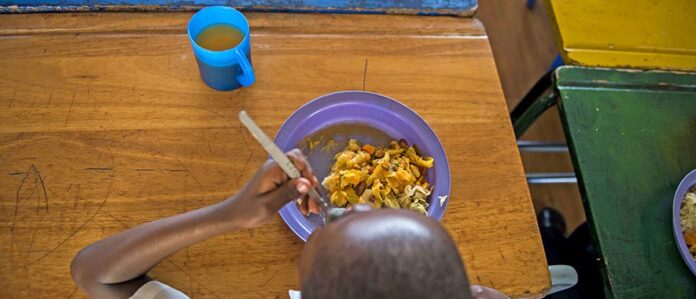The Gauteng education department has blamed financial pressures and budget cuts in delayed payments for service providers working under its extended nutritional school nutrition programme (NSNP).
Steve Mabona, the spokesperson for the department, said there is an NSNP run by the national Department of Basic Education that continues to provide meals without interruption to learners in Quintile 1 to 3 schools, which are no-fee-paying schools.
Funding for this comes directly from a national grant. But the NSNP does not cover Quintile 4 and 5 schools, which are normally fee-paying schools.
As more vulnerable children began attending these schools, he said, Gauteng introduced the extended NSNP to ensure they also receive daily meals.
This extra programme is funded by the province.
Budget cuts
Mabona said the number of children in need of food support in fee-paying schools has grown quickly, while provincial budgets have been cut.
This has placed serious pressure on the extended NSNP and led to payment delays for some service providers.
“Regrettably, these challenges have resulted in delays in processing payments to some service providers operating under the extended programme.
“The department has engaged directly with affected service providers and committed to resolve accordingly,” said Mabona.
He clarified that the extended NSNP is the issue, not the no-fee-paying schools.
Mabona clarified that the government is examining the school quintile system to guarantee that funding distributions align with current socio-economic conditions.
Illegal schools
At the same time, the education department in Gauteng is cracking down on illegal schools, warning parents that enrolling children at such institutions puts their future at risk.
“The Gauteng department of education continues to take decisive action against illegally operating schools to safeguard the rights of learners and ensure access to quality education within the province’s basic education system,” Mabona said.
Learners at these schools are not captured in the Education Management Information System, leaving them unfunded and with invalid reports.
For matric pupils, this can mean not being certificated.
He revealed that about 1 200 learners have been moved from illegal schools to registered institutions in the past five yearas.
Mabona said the department has also opened cases with the SA Police Service against several school owners and urged parents to report suspicious schools.




